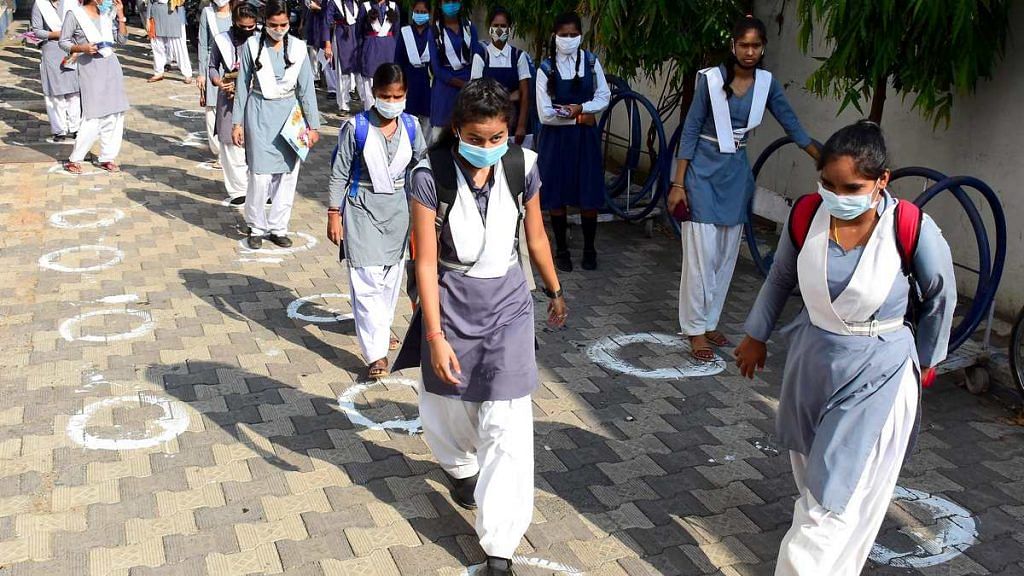New Delhi: There are inherent problems in our current education system, such as how “our education does not get us a job”, said ThePrint’s Editor-in-Chief Shekhar Gupta as he discussed the new National Education Policy (NEP), which is aimed at fixing the mess in India’s education system.
In episode 535 of Cut the Clutter, Gupta dissected, one by one, how the new policy addresses the current problems.
He began by talking about the irrelevance of what students are taught in schools and colleges and how far it actually helps us in real life. Quoting a line from a famous Gulzar song ‘Halchal Theek Thak Hai‘ from the film Mere Apne — “BA kiya, MA kiya, lagta hai woh bhi anwai kiya (I’ve done a BA and an MA, but it all seems to be in vain)” — he underlined how little degrees help in the long run.
He further pointed out that the education system is too exam-centric and likened it to a game of Russian roulette, wherein a bullet is placed in one of the six chambers of a revolver and then the gun is fired. Depending on your luck, you’ll either get an empty chamber or the one loaded with the bullet. Gupta said if things go well for you on the day of the final exam, it is like shooting the empty chamber and you survive. But if anything went wrong, it would be like shooting yourself in the head.
Also read: A second shot at boards, no MPhil, a blow to rote-learning — what Modi govt’s NEP brings
Changing a fixed path
The other problem Gupta pointed out with the education system is the insularity. He explained that a student gets typecast for life based on the subject they chose in school and the future course of life is decided by that one choice.
For example, if a student studies physics, chemistry and/or maths, they will go on to become an engineer. And if one is not good at maths, they study biology and go on to become a doctor — that is a tag they carry for the rest of their life.
The current policy aims to solve this by allowing students to mix and match subjects in school and college. Gupta also spoke about the comeback of the four-year undergraduate programme, which was rolled back in 2013.
The NEP will allow universities to offer both three-year and four-year undergraduate programs, which will allow students multiple exit options. If a student leaves after one year, he or she will get a certificate, leaving after two years will earn a diploma, and the degree will be awarded on completing three or four years. The system is a welcome step, said Gupta.
Right to Education extension
The NEP also addressed the issues at the basic learning level among school children in the country. Gupta noted that the policy bats for extending the Right to Education from three to 18 years of age. Currently, it applies to five to 14 years of age. The extension will enable inclusion of children from all ages in the formal schooling system, thereby ensuring that every child gets educated. This will be a very positive step because it will improve the learning level among school children in India, said Gupta.
The NEP also provided for using regional or local languages as a medium of instruction upto Class 5 in schools. This, Gupta said, is a good idea since students will be taught in their mother tongue or a language they best understand, but he questioned how the formula will be applied to schools that are more metropolitan, like the Dhirubhai Ambani School in Mumbai. He added that teaching in one’s mother tongue should not undermine the value of teaching English in schools because we cannot have a generation of children who are not able to do business in the English language.
Gupta addressed one more problem which, according to him, the policy does not resolve — commercialisation and corruption. Education will be treated as a ‘not for profit’ entity under the new policy. This, Gupta argued, will give rise to more corruption because people do not want to open education institutions for charity.
